A career in any field of agriculture requires a combination of scientific and practical knowledge of the subject matter. Practical to advise and converse with farmers and scientific to help provide the best advice, interpret different situations and to be able to think ahead with nature.
Most agricultural graduates get a feel for practical agriculture on the home farm, or on a farm within the wider family. But different people get their interest in agriculture at different times in their lives, so the career is not confined to one’s childhood. The appreciation of good practical advice can come from before, during or after a good scientific grounding. Read the experiences of Ross Kelly reported elsewhere in this article.
Good advisors, whether private or commercial, combine an ability to analyse situations and circumstances and then relate their advice to farmers
Agriculture provides great career diversity. There are different enterprises and different professional requirements. These range across advisory, farming, research, business, etc. There are also jobs that cross over enterprises like consultancy, accountancy, those who help fill in forms and applications etc. And there are many opportunities to cross these disciplines along a career path.
Good advisors, whether private or commercial, combine an ability to analyse situations and circumstances and then relate their advice to farmers. This requires an understanding of the business, a knowledge of the science and an ability to work with nature. So, different skill sets are required depending on the job.
The crop advisor
Sometimes referred to as an agronomist, the crop advisor is important in the tillage sector. Some are born into the sector, while others are there because it was their first professional job.
Advice on growing crops is important. With an annual crop there is only one opportunity to make and execute a decision that cannot be altered for a whole year. For this reason, it is essential that crop advisors keep themselves fully up to date on the latest input and research information.
For the past four decades a major focus of the crop advisor was to recommend products and strategies for the control of weeds, diseases, and crop pests. This necessitated a knowledge of the many chemical actives and commercial products in the market. This also meant that advisors (and farmers) needed to keep themselves fully updated on all such matters.
We have a good calibre of dedicated advisors across all three categories, but I can see an increasing challenge to the traditional company rep as the pressure intensifies to decrease pesticide use
Since the arrival of the Sustainable Use of Pesticides Directive, crop advisors, specifically referred to as professional advisors, have had to partake in Continuous Professional Education (CPE) to ensure that they are up to date on product knowledge, the implementation of integrated pest management (IPM) and the implementation of best practice on tillage farms.
Crop production advice is generally provided by three categories of people: the Teagasc advisor, the company rep, and the consultant.
We have a good calibre of dedicated advisors across all three categories, but I can see an increasing challenge to the traditional company rep as the pressure intensifies to decrease pesticide use.
Reduced pesticide use, combined with more actions on the IPM side, will challenge the commercial model as used today. If there is less input used at farm level this means lower turnover to generate wages. It will be difficult to sustain these jobs on a payment for inputs basis. But the sector is innovative, and it will transition to a new model of advice delivery. Read David Shortall’s comments elsewhere in this article regarding his experience working for Cargill in Canada.
The graduate of the future
Indeed, as our chemical arsenal is decreased, the need for advice will arguably increase. Growers and researchers will be forced to find alternative ways to reduce or minimise disease, weed and pest pressures. This may mean even better rotations and altered farm practices. But it is unlikely that this will be a rapid transition and it will most likely be led by new entrants into the advice arena who are, hopefully, being educated in these new technologies.
The graduate of the future will be expected to bring new ways of improving soil health along with a greater appreciation of its benefits. Graduates who can bring this advice and deliver improved IPM initiatives will be an essential asset for the future of the sector.
One last comment from years of lecturing in UCD many moons ago. At the end of the academic year a student asked: “Is this it? Is this all we need to know about crops?” I replied that “what you get in college are the tools to learn, not a total knowledge base. From this point forward you will have to learn every day of your life as things will continuously change around us.”
Employers in agriculture often commented to me that modern graduates appear to be well suited to farming, advisory and research but not necessarily to commercial roles. And this is where a big proportion of jobs are. Commercial can be many things and range from selling products, providing services, trading, etc but it necessitates an understanding of the business objectives of the farmer and the employer. Key to this is an ability to communicate face to face with customers.
Many commercial businesses are integrated in that they sell inputs, purchase crops, produce feed and sell to the livestock sector. So, agricultural graduates need to understand all of agriculture because it is all interlinked commercially.
While there is a need to understand the basics of business, this is an even bigger need to be able to deal with farmers
Jobs in the commercial sector can present a steep learning curve but it seems likely that graduates that have little understanding of the commercial sector will not find employment in it.
While there is a need to understand the basics of business, this is an even bigger need to be able to deal with farmers.
Much of this is not and perhaps cannot be taught in third level institutions so the initiative of the graduate is critical in gaining this experience.
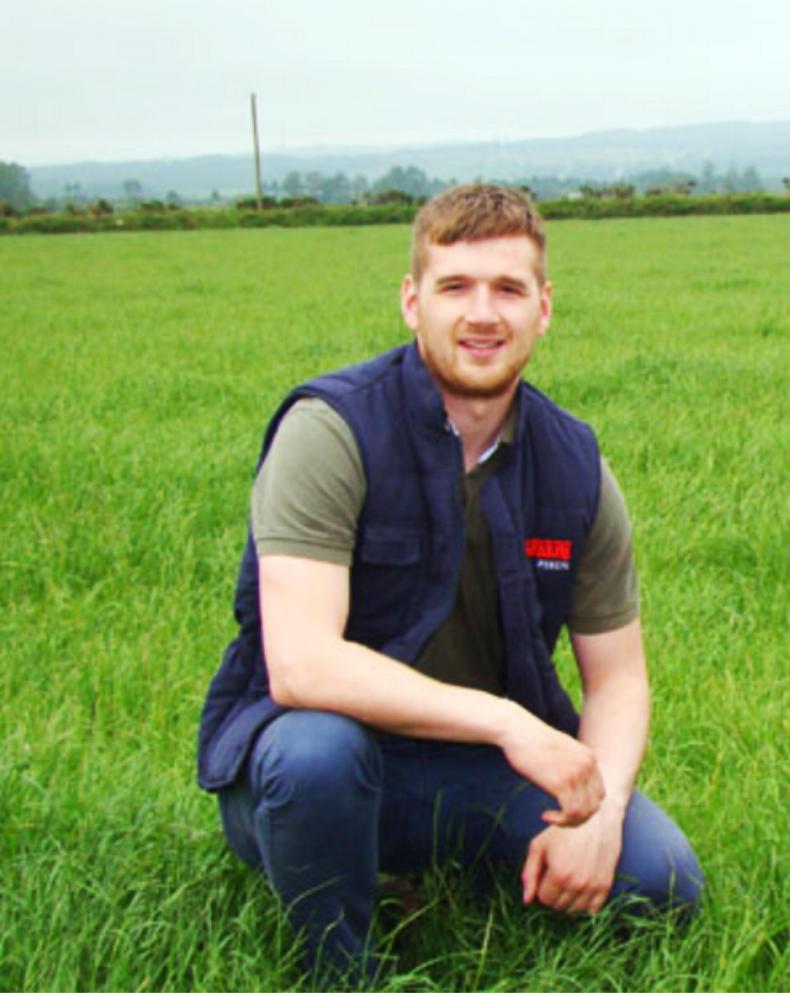
Ross Kelly entered a graduate programme to add to his knowledge and experience as he entered his professional career.
Ross Kelly is an agricultural graduate from UCD. He grew up in Kildare with no direct association with farming or agriculture. There was some association one generation back, and while this was limited, he always had an interest in farming. In secondary school, one of his possible career interests was sports journalism.
During his transition year he came to the Irish Farmers Journal for a work experience week to get some feel for journalism. This increased his interest in the sector and from that point on he began to focus on a career in agriculture.
The next step was to attend university and he did agriculture in UCD. While not having had much direct experience of farming or agriculture, he enjoyed college and the education he received there. Part of the agriculture degree requires students to partake in work experience in the different sectors and he did this in his third year.
He worked with farmers and others, getting experience of sheep farming in Kilkenny, pig production at Lyons farm, tillage and beef farming in Kildare and dairy production in Kilkenny.
Ross enjoyed all the experience of college and commented that “learning is particularly rewarding for someone who is eager to learn”.
He is happy with how his career has progressed to date and is very conscious that it could still go in many different directions, even within Glanbia
After graduating in 2014, he entered a graduate programme with Glanbia. This gave him further experience of working in the sector, an opportunity to use the knowledge he had acquired and provided him with an opportunity to learn from both his colleagues and farmers he was working with. Working involves a combination of experience, technical knowledge, and people skills. It also exposed him to the business areas and the opportunity to understand and learn more about it.
Ross is now an employee of Glanbia and is ruminant business manager for north Kilkenny and Laois.
He is happy with how his career has progressed to date and is very conscious that it could still go in many different directions, even within Glanbia.
Asked about potential advice for others, Ross advised that one of the most important elements of any career path is to “pursue your interest”.
Get prepared for a career in the commercial world
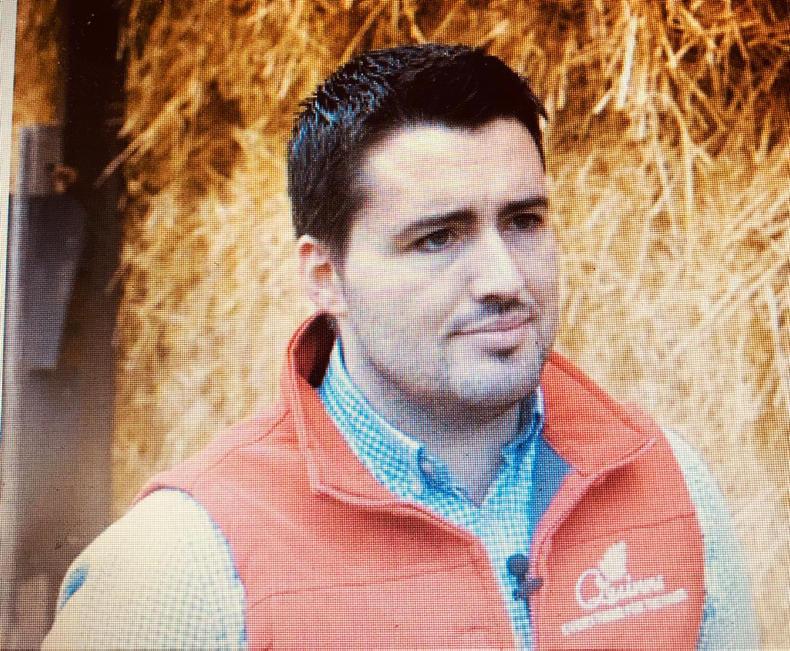
David Shortall had a commercial business career in mind long before he finished his degree and he prepared well for it.
David Shortall comes from a tillage and beef farm in Stradbally, Co Laois. Having been born into agriculture, it was no surprise that he wanted to study agriculture. While still in secondary school, he set himself the target of getting a UCD 150 scholarship to study agribusiness, and he got it. But he also wanted to be involved in the science end of agriculture.
His interest in business was not confined to his studies. He was well aware of the need to get experience in the commercial side of life and he took every possible opportunity to work on the frontline with customers and to get familiarity with selling. A degree alone cannot prepare one for this type of work, but David feels that the institutions should do more to prepare graduates for the range of career paths that they may experience.
Before he finished his final year exams, he had acquired a job with Quinns of Baltinglass. He felt that his experience of working and dealing with people stood to him in that interview. He began working for the company in June 2010 and spent the next five years in that business. He was tasked with setting up a new branch and securing the business for it. That meant getting new customers – it was a steep learning curve.
International experience
Having succeeded in doing this, he decided to leave the company and Ireland in 2015 in search of international work experience. He decided on Canada, as it had a very diverse agriculture, and he quickly found himself with a number of job offers. He reckons that his previous work experience, plus his knowledge of wheat agronomy, stood to him in the job market.
He decided to take the Cargill offer because it is an international company and very much out in front in terms of the diversity of its business. His crop experience in Ireland helped to deliver some quick commercial results that opened more doors within the company.
While David worked for Cargill, his job was a consultant agronomist. That meant that farmers paid Cargill specifically for his advice
Farmers there were eager to improve husbandry to increase yields and they responded to good advice.
While David worked for Cargill, his job was a consultant agronomist. That meant that farmers paid Cargill specifically for his advice. He only provided advice. Other Cargill employees sold the various inputs and bought the end products. The different wings of the business worked together, but they had separate jobs to do. David’s job was to balance the technical with the commercial.
Advice to students
David advises students to get lots of commercial experience during their college years. Work in all types of businesses and experience the need to secure margins while dealing with customers.
Starting in secondary school, he worked for a number of years at a machinery auction in Portlaoise and right through to his college years. He also got valuable experience with an agricultural consultant and a feed merchant in Offaly during work experience in the third year at UCD.
He described his work experience with Cargill as being like a commercially based master’s degree
He was constantly exposed to the financial side of businesses, giving him a good understanding of how to deal with and build relationships with customers.
He described his work experience with Cargill as being like a commercially based master’s degree, because of the scale of Cargill and their focus on employee training and development. For anyone thinking of doing something similar, he strongly advises getting work experience in Ireland first, because the more you can offer an employer the more you are likely to benefit from international work experience.
David has since returned home to Ireland and he went back working for Quinns, where he is now agri sales manager in the company.
A career in any field of agriculture requires a combination of scientific and practical knowledge of the subject matter. Practical to advise and converse with farmers and scientific to help provide the best advice, interpret different situations and to be able to think ahead with nature.
Most agricultural graduates get a feel for practical agriculture on the home farm, or on a farm within the wider family. But different people get their interest in agriculture at different times in their lives, so the career is not confined to one’s childhood. The appreciation of good practical advice can come from before, during or after a good scientific grounding. Read the experiences of Ross Kelly reported elsewhere in this article.
Good advisors, whether private or commercial, combine an ability to analyse situations and circumstances and then relate their advice to farmers
Agriculture provides great career diversity. There are different enterprises and different professional requirements. These range across advisory, farming, research, business, etc. There are also jobs that cross over enterprises like consultancy, accountancy, those who help fill in forms and applications etc. And there are many opportunities to cross these disciplines along a career path.
Good advisors, whether private or commercial, combine an ability to analyse situations and circumstances and then relate their advice to farmers. This requires an understanding of the business, a knowledge of the science and an ability to work with nature. So, different skill sets are required depending on the job.
The crop advisor
Sometimes referred to as an agronomist, the crop advisor is important in the tillage sector. Some are born into the sector, while others are there because it was their first professional job.
Advice on growing crops is important. With an annual crop there is only one opportunity to make and execute a decision that cannot be altered for a whole year. For this reason, it is essential that crop advisors keep themselves fully up to date on the latest input and research information.
For the past four decades a major focus of the crop advisor was to recommend products and strategies for the control of weeds, diseases, and crop pests. This necessitated a knowledge of the many chemical actives and commercial products in the market. This also meant that advisors (and farmers) needed to keep themselves fully updated on all such matters.
We have a good calibre of dedicated advisors across all three categories, but I can see an increasing challenge to the traditional company rep as the pressure intensifies to decrease pesticide use
Since the arrival of the Sustainable Use of Pesticides Directive, crop advisors, specifically referred to as professional advisors, have had to partake in Continuous Professional Education (CPE) to ensure that they are up to date on product knowledge, the implementation of integrated pest management (IPM) and the implementation of best practice on tillage farms.
Crop production advice is generally provided by three categories of people: the Teagasc advisor, the company rep, and the consultant.
We have a good calibre of dedicated advisors across all three categories, but I can see an increasing challenge to the traditional company rep as the pressure intensifies to decrease pesticide use.
Reduced pesticide use, combined with more actions on the IPM side, will challenge the commercial model as used today. If there is less input used at farm level this means lower turnover to generate wages. It will be difficult to sustain these jobs on a payment for inputs basis. But the sector is innovative, and it will transition to a new model of advice delivery. Read David Shortall’s comments elsewhere in this article regarding his experience working for Cargill in Canada.
The graduate of the future
Indeed, as our chemical arsenal is decreased, the need for advice will arguably increase. Growers and researchers will be forced to find alternative ways to reduce or minimise disease, weed and pest pressures. This may mean even better rotations and altered farm practices. But it is unlikely that this will be a rapid transition and it will most likely be led by new entrants into the advice arena who are, hopefully, being educated in these new technologies.
The graduate of the future will be expected to bring new ways of improving soil health along with a greater appreciation of its benefits. Graduates who can bring this advice and deliver improved IPM initiatives will be an essential asset for the future of the sector.
One last comment from years of lecturing in UCD many moons ago. At the end of the academic year a student asked: “Is this it? Is this all we need to know about crops?” I replied that “what you get in college are the tools to learn, not a total knowledge base. From this point forward you will have to learn every day of your life as things will continuously change around us.”
Employers in agriculture often commented to me that modern graduates appear to be well suited to farming, advisory and research but not necessarily to commercial roles. And this is where a big proportion of jobs are. Commercial can be many things and range from selling products, providing services, trading, etc but it necessitates an understanding of the business objectives of the farmer and the employer. Key to this is an ability to communicate face to face with customers.
Many commercial businesses are integrated in that they sell inputs, purchase crops, produce feed and sell to the livestock sector. So, agricultural graduates need to understand all of agriculture because it is all interlinked commercially.
While there is a need to understand the basics of business, this is an even bigger need to be able to deal with farmers
Jobs in the commercial sector can present a steep learning curve but it seems likely that graduates that have little understanding of the commercial sector will not find employment in it.
While there is a need to understand the basics of business, this is an even bigger need to be able to deal with farmers.
Much of this is not and perhaps cannot be taught in third level institutions so the initiative of the graduate is critical in gaining this experience.

Ross Kelly entered a graduate programme to add to his knowledge and experience as he entered his professional career.
Ross Kelly is an agricultural graduate from UCD. He grew up in Kildare with no direct association with farming or agriculture. There was some association one generation back, and while this was limited, he always had an interest in farming. In secondary school, one of his possible career interests was sports journalism.
During his transition year he came to the Irish Farmers Journal for a work experience week to get some feel for journalism. This increased his interest in the sector and from that point on he began to focus on a career in agriculture.
The next step was to attend university and he did agriculture in UCD. While not having had much direct experience of farming or agriculture, he enjoyed college and the education he received there. Part of the agriculture degree requires students to partake in work experience in the different sectors and he did this in his third year.
He worked with farmers and others, getting experience of sheep farming in Kilkenny, pig production at Lyons farm, tillage and beef farming in Kildare and dairy production in Kilkenny.
Ross enjoyed all the experience of college and commented that “learning is particularly rewarding for someone who is eager to learn”.
He is happy with how his career has progressed to date and is very conscious that it could still go in many different directions, even within Glanbia
After graduating in 2014, he entered a graduate programme with Glanbia. This gave him further experience of working in the sector, an opportunity to use the knowledge he had acquired and provided him with an opportunity to learn from both his colleagues and farmers he was working with. Working involves a combination of experience, technical knowledge, and people skills. It also exposed him to the business areas and the opportunity to understand and learn more about it.
Ross is now an employee of Glanbia and is ruminant business manager for north Kilkenny and Laois.
He is happy with how his career has progressed to date and is very conscious that it could still go in many different directions, even within Glanbia.
Asked about potential advice for others, Ross advised that one of the most important elements of any career path is to “pursue your interest”.
Get prepared for a career in the commercial world

David Shortall had a commercial business career in mind long before he finished his degree and he prepared well for it.
David Shortall comes from a tillage and beef farm in Stradbally, Co Laois. Having been born into agriculture, it was no surprise that he wanted to study agriculture. While still in secondary school, he set himself the target of getting a UCD 150 scholarship to study agribusiness, and he got it. But he also wanted to be involved in the science end of agriculture.
His interest in business was not confined to his studies. He was well aware of the need to get experience in the commercial side of life and he took every possible opportunity to work on the frontline with customers and to get familiarity with selling. A degree alone cannot prepare one for this type of work, but David feels that the institutions should do more to prepare graduates for the range of career paths that they may experience.
Before he finished his final year exams, he had acquired a job with Quinns of Baltinglass. He felt that his experience of working and dealing with people stood to him in that interview. He began working for the company in June 2010 and spent the next five years in that business. He was tasked with setting up a new branch and securing the business for it. That meant getting new customers – it was a steep learning curve.
International experience
Having succeeded in doing this, he decided to leave the company and Ireland in 2015 in search of international work experience. He decided on Canada, as it had a very diverse agriculture, and he quickly found himself with a number of job offers. He reckons that his previous work experience, plus his knowledge of wheat agronomy, stood to him in the job market.
He decided to take the Cargill offer because it is an international company and very much out in front in terms of the diversity of its business. His crop experience in Ireland helped to deliver some quick commercial results that opened more doors within the company.
While David worked for Cargill, his job was a consultant agronomist. That meant that farmers paid Cargill specifically for his advice
Farmers there were eager to improve husbandry to increase yields and they responded to good advice.
While David worked for Cargill, his job was a consultant agronomist. That meant that farmers paid Cargill specifically for his advice. He only provided advice. Other Cargill employees sold the various inputs and bought the end products. The different wings of the business worked together, but they had separate jobs to do. David’s job was to balance the technical with the commercial.
Advice to students
David advises students to get lots of commercial experience during their college years. Work in all types of businesses and experience the need to secure margins while dealing with customers.
Starting in secondary school, he worked for a number of years at a machinery auction in Portlaoise and right through to his college years. He also got valuable experience with an agricultural consultant and a feed merchant in Offaly during work experience in the third year at UCD.
He described his work experience with Cargill as being like a commercially based master’s degree
He was constantly exposed to the financial side of businesses, giving him a good understanding of how to deal with and build relationships with customers.
He described his work experience with Cargill as being like a commercially based master’s degree, because of the scale of Cargill and their focus on employee training and development. For anyone thinking of doing something similar, he strongly advises getting work experience in Ireland first, because the more you can offer an employer the more you are likely to benefit from international work experience.
David has since returned home to Ireland and he went back working for Quinns, where he is now agri sales manager in the company.







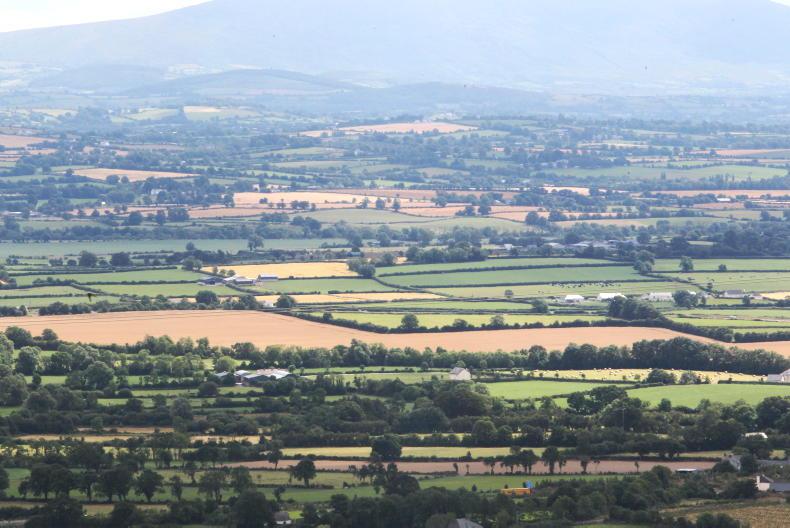
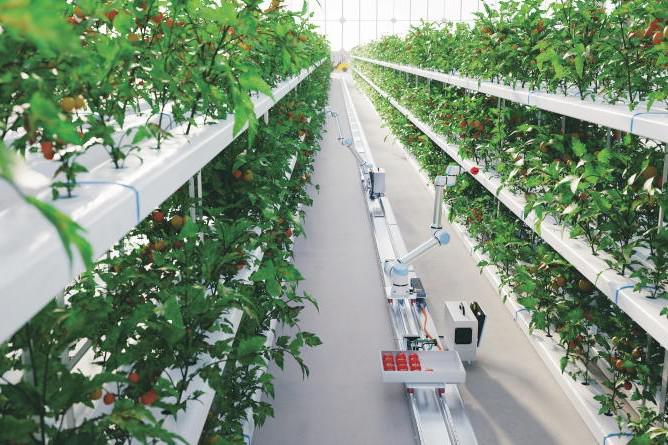

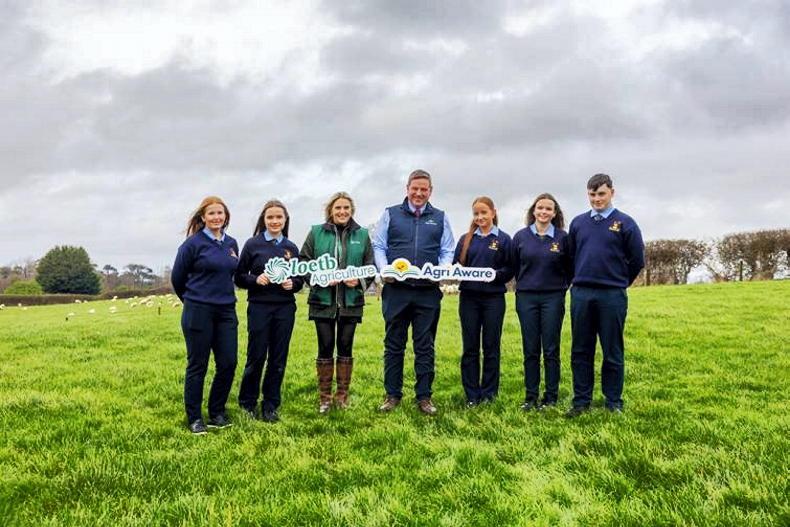
SHARING OPTIONS